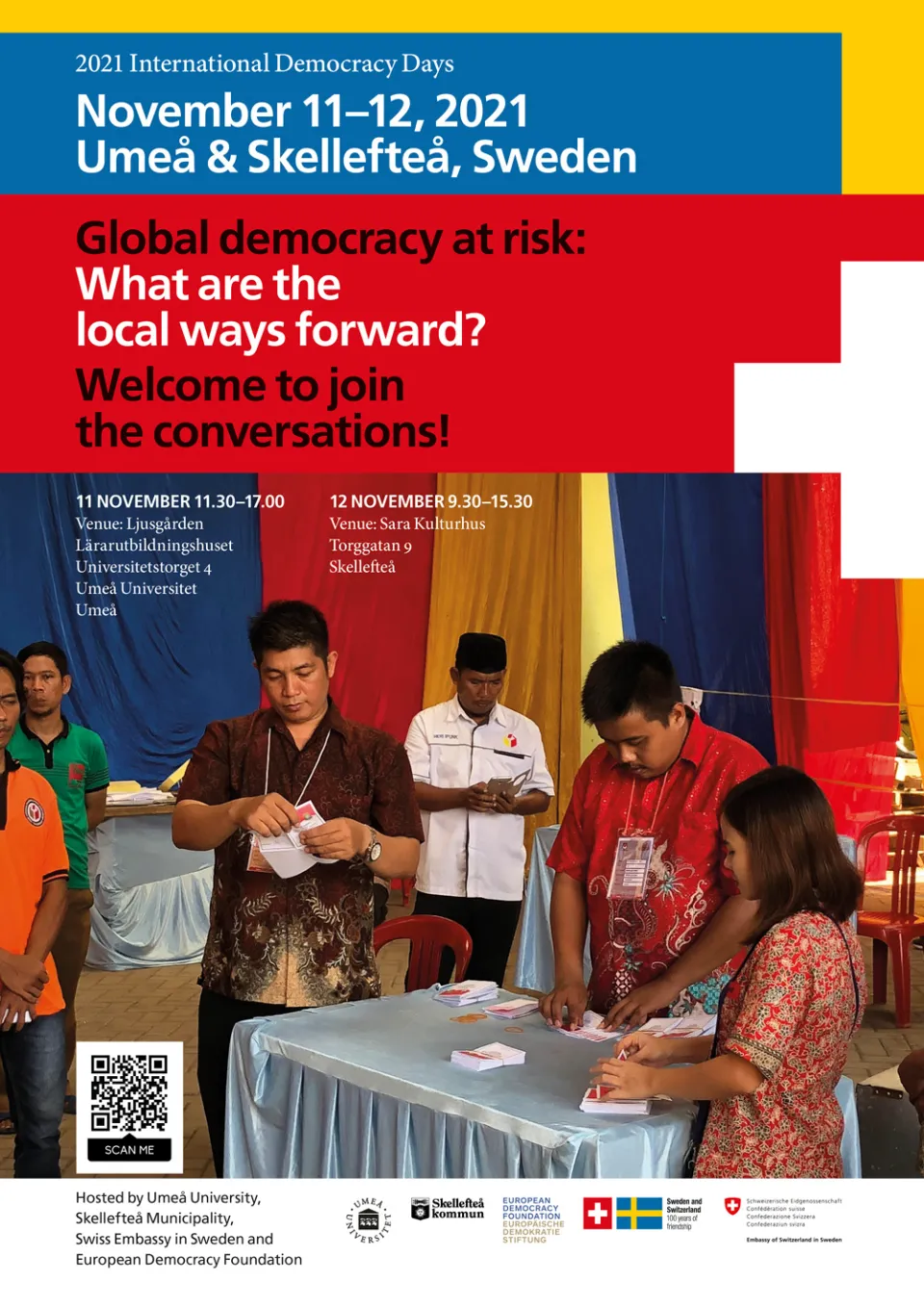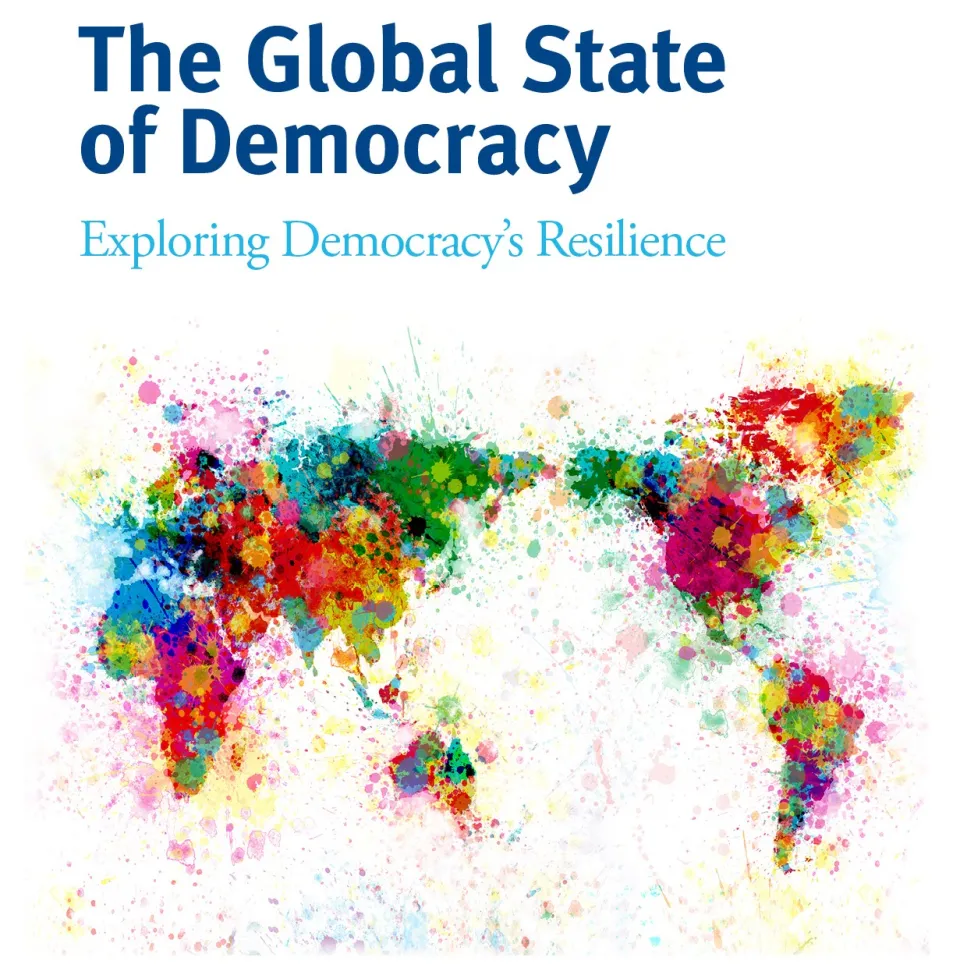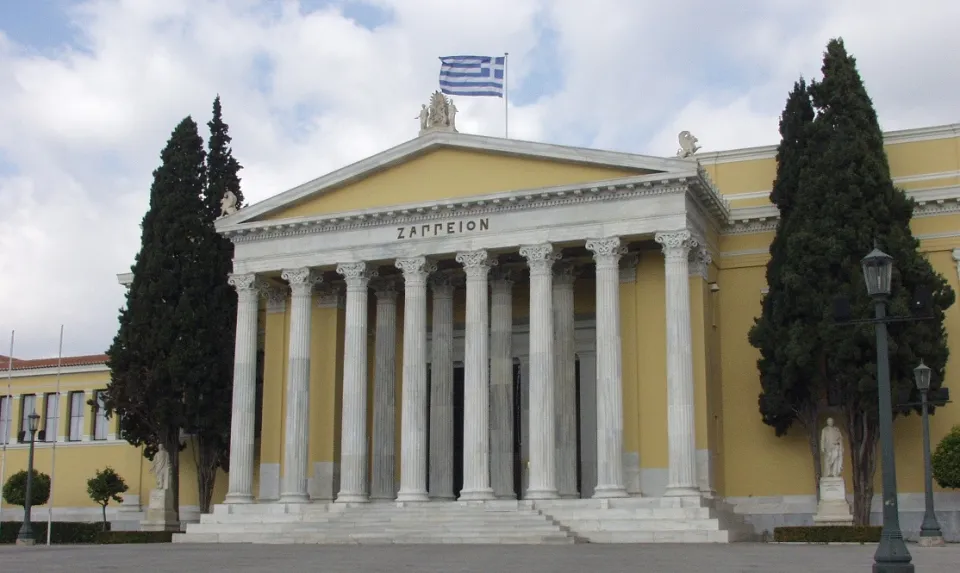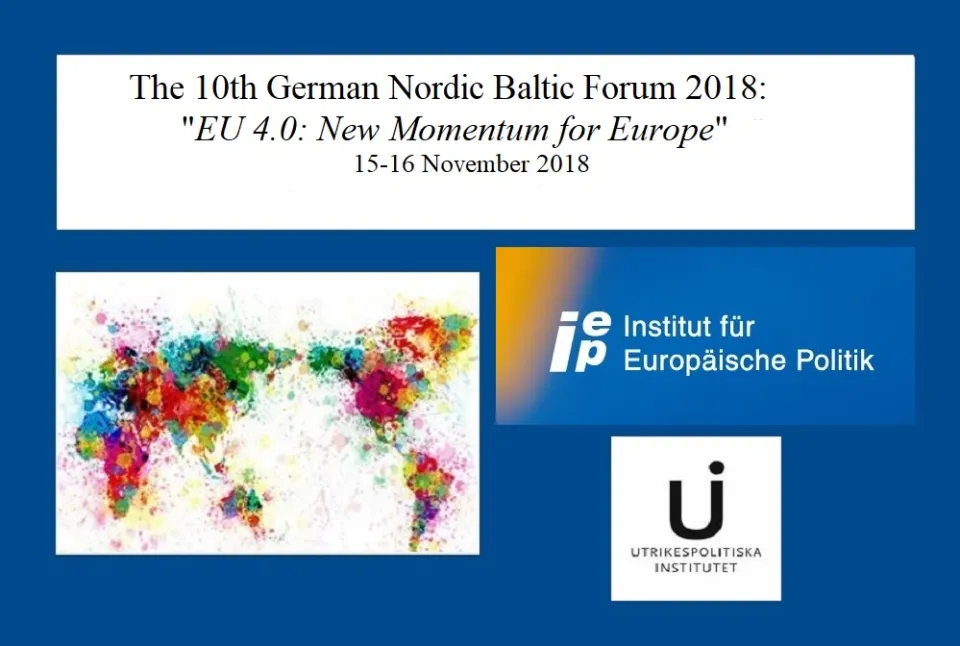World Forum for Democracy 9th edition
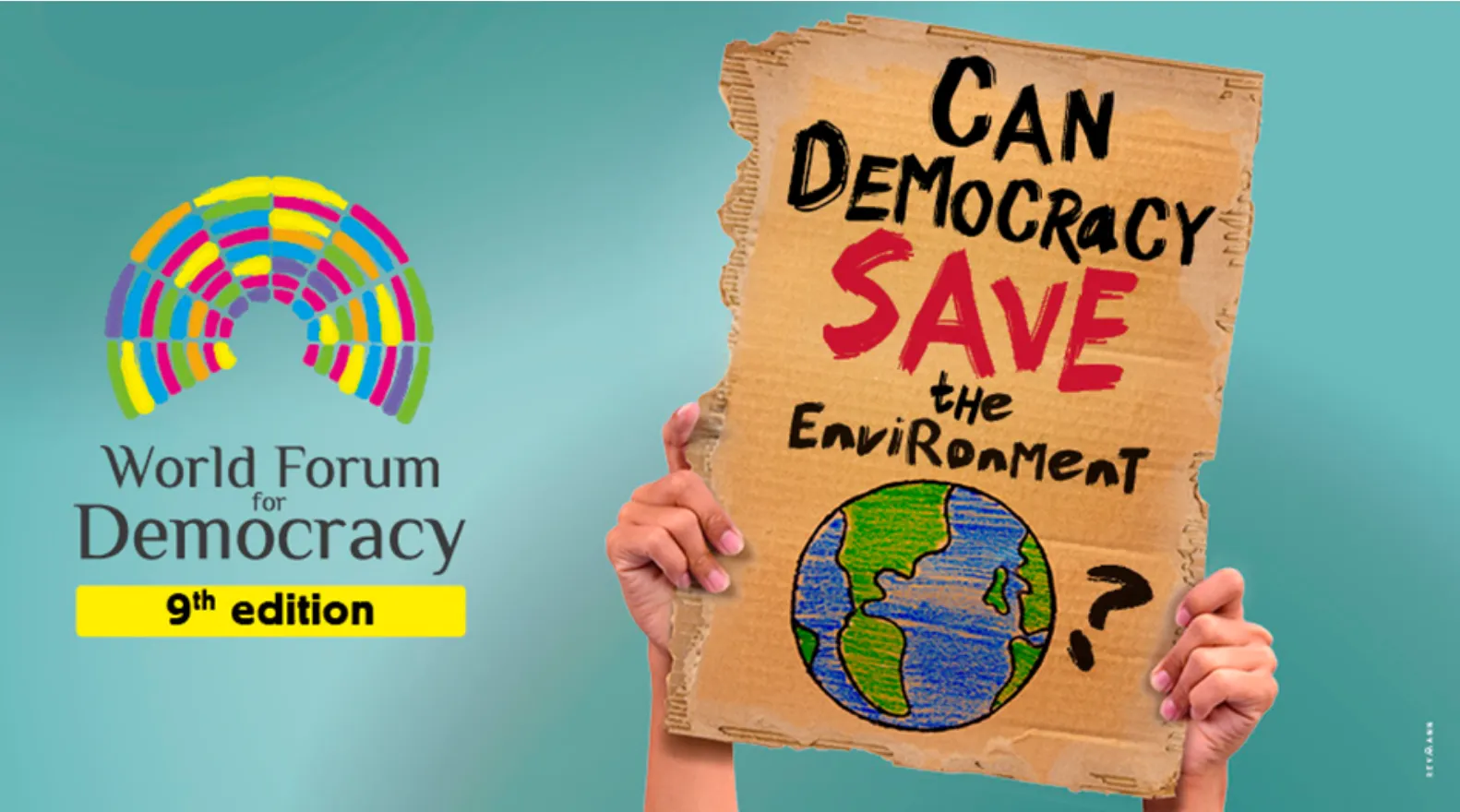
The World Forum for Democracy will bring together intellectuals, politicians, activists, experts and young people from all over the world from 8 to 10 November to answer the question “Can democracy save the environment” after a year-long, worldwide, online debate about democracy and the environment. The Forum, which will be entirely live-streamed, is organised by the Council of Europe, in partnership with Strasbourg City Council, the European Collectivity of Alsace, the Grand Est Region and the French Government.
The participants will discuss the following themes:
- National governments, international organisations or the citizen: who is setting the pace?
- What governing style is best placed to tackle the environmental challenge?
- Public or private: what role for each sector?
- Multilateral organisations tackling global problems with global solutions
Dr Kevin Casas-Zamora will address Plenary Session 4, “Multilateral organisations: tackling global problems with global solutions”, 9:00-10:30 h (CET).
The World Forum for Democracy is a unique platform for political decision-makers and activists to debate solutions to key challenges for democracies worldwide. Identifying and analysing experimental initiatives and practices allows the Forum to highlight and encourage democratic innovations at grassroots level and their transfer onto a systemic level. The Forum thus contributes to strengthening the foundations of democratic societies and the evolution of democracy through the development of more participatory and inclusive structures and institutions.
Can Democracy Save the Environment?
More than ever we see the interdependence of our physical and our political worlds. On a planet in crisis, does democracy have what it takes to save the environment? Our societies have been tested by an extreme and unexpected global challenge, but while an essential battle is fought against the Covid-19 pandemic and its consequences, humanity’s greatest existential threat looms ever larger. Environmental damage and climate change have not gone away. The poisoning of our land and pollution in our air and water is still killing plants, animals and humans alike. Rising temperatures and sea levels are on course to render lands uninhabitable and force people to leave their homes and seek new lives. The time to act is now!
Yet recent polling indicates the highest ever recorded levels of dissatisfaction and mistrust with democracy as a system of government. Its response to a whole series of recent challenges – economic, pandemic, and indeed environmental – have disappointed millions of people. Many are questioning the capacity, competence and even legitimacy of democratic governance to address their greatest needs. So, when it comes to stopping and reversing the devastating damage done to our environment, we must ask ourselves what it really takes to get the job done. How to ensure that democratic leadership be capable of the swift and decisive action required? If our current way of life is incompatible with our long-term health and survival, how can we mobilise ourselves to make fundamental changes? Has the Covid-19 pandemic demonstrated that we are in fact capable of great shifts in our habits at times of need? Could new restrictions and behavioural change also “flatten the curve” of environmental damage? Do our governments enjoy sufficient trust to enable them to take the necessary action in time?
Programme Overview
Monday 8 November
09.30 -> Welcome Words from President of the PACE
09.35-10.30 -> Time for Facts
10.30-10.40 -> Musical Interlude
10.40-11.15 -> Opening Session – Welcome words
11.15-12.30 -> Plenary Session 1: National governments, international organisations or the citizen: who is setting the pace?
12.30-14.00 -> Lunch Break
14.00-16.00 -> Plenary Session 2: What governing style is best placed to tackle the environmental challenge?
16.00-16.30 -> Break
16.30-18.30 -> Plenary Session 3: Public or private: what role for which sector?
18.30 -> Inauguration of Cartooning for Peace’s selected from the campaign “12 Months, 1 Question! Followed by a reception at the Blue Restaurant
Tuesday 9 November
09.00-11.00 -> FIRST SERIES OF LABS
Lab 1 More heads are better than one: Citizens’ Assemblies on climate
Lab 2 Save the planet, make a living: Green entrepreneurship
Lab 3 The law as an agent of nature: Access to environmental justice and protection
Lab 4 Sustainable cities: When the problem becomes part of the solution
Lab 5 Act Local, inspire global: Local initiatives making change
11.00-11.30 -> Break
11.30-13.00 -> FORUM TALKS
Forum Talk 1 Deliberative democracy for climate
Forum Talk 2 Human rights for the environment
Forum Talk 3 Threats to environmental defenders
Forum Talk 4 Youth climate activism
Forum Talk 5 Linking Biodiversity, Climate Change and a Healthy Environment
Forum Talk 6 #EnvironmentRightNow
13.00-14.30 -> Lunch Break
14.30-16.30 -> SECOND SERIES OF LABS
Lab 6 Joining forces: Public-private collaborations for the environment
Lab 7 Better together: Engaging communities for nature conservation and protection
Lab 8 Scarcity and sources of conflict: Managing natural resources to prevent conflict
Lab 9 Knowledge is power: Environmental education and training
Lab 10 Women's power to act for the climate transition
Wednesday 10 November
09.00-10.30 -> Plenary Session 4
Multilateral organisations tackling global problems with global solutions
10.30-12.00 -> Plenary Session 5
Reporting from the Forum and Agenda for the Future
12.00–13.00 -> Closing Session and ceremony for the Democracy Innovation Award
